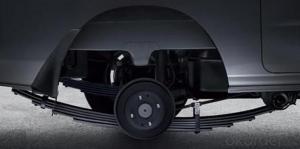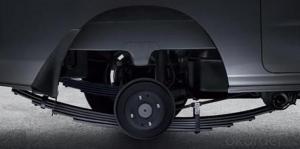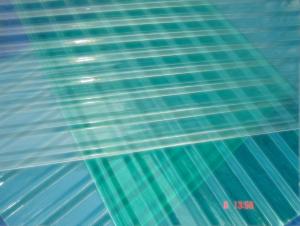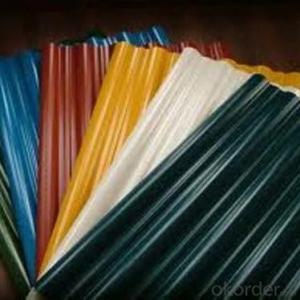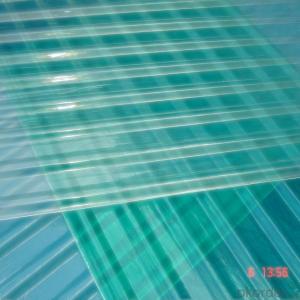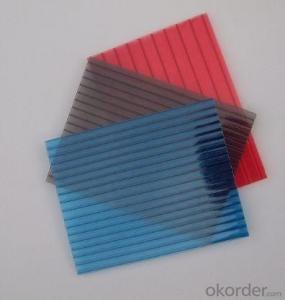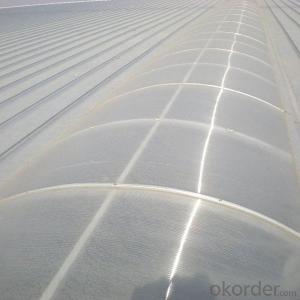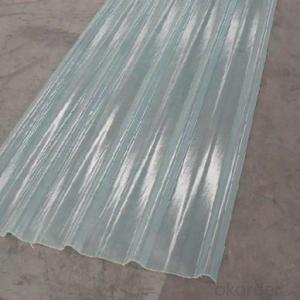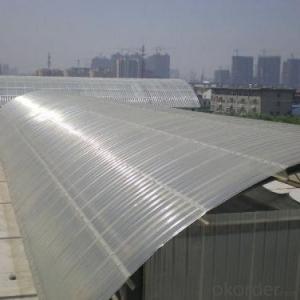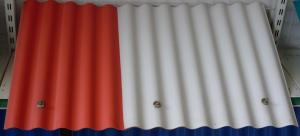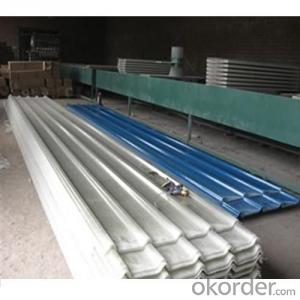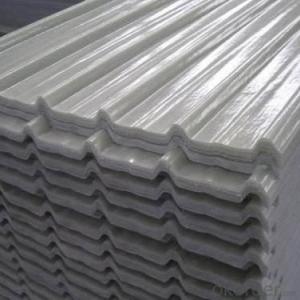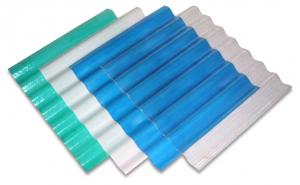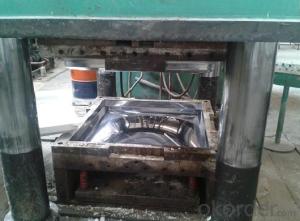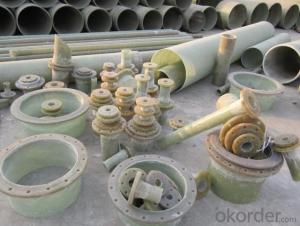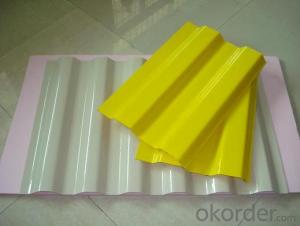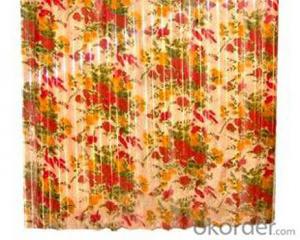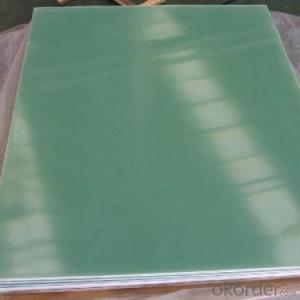SMC Pressed COMPOSITE LEAF SPRING Applied in Automobile
- Loading Port:
- Tianjin
- Payment Terms:
- TT or LC
- Min Order Qty:
- 1000 m²
- Supply Capability:
- 100000 m²/month
OKorder Service Pledge
OKorder Financial Service
You Might Also Like
Introduction
SMC and BMC are abbreviations of respectively Sheet Molding Compound and Bulk Molding Compound. SMC and BMC form a family of structural, fiber reinforces thermosetting resins. SMC and BMC are intermediate materials from which a large variety of products can be manufactured by compression molding or injection molding. Base materials of SMC and BMC are, generally spoken, unsaturated polyester resins, glass and mineral filler materials, such as chalk or aluminum trihydrate. The composition of the compounds can be adapted to the application where it is used for. Specific properties such as flame retardancy, surface quality and paintability can be achieved by adding specific, functional materials. SMC and BMC product are used in a very broad range of applications
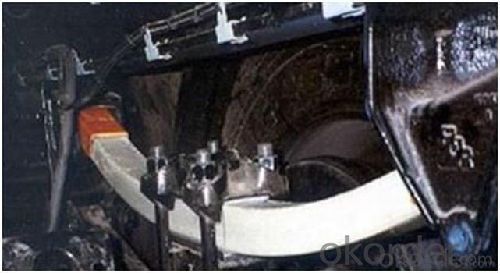
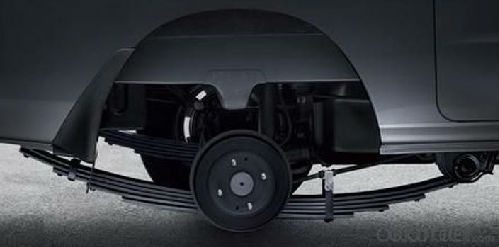
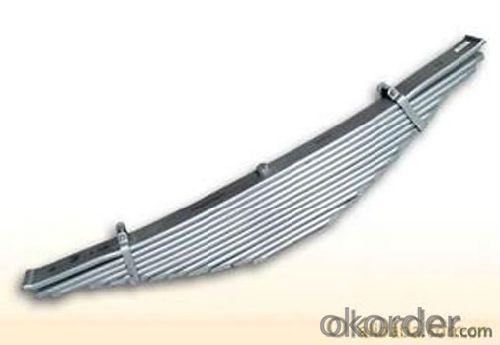
Product Description
1. Y27 Series Frame-type Hydraulic Press is a kind of multifunctional precision machine which has high speed.
2. Cartridge valve equipped for hydraulic control system, reliable, durable and less hydraulic shock, shorter connection pipeline and fewer release points.
3. Optimized design, the frame is entirely welded with steel plates, and treated to relive stress by tempering for high precision.
4. Centralized button control system, with adjustment, hand and semi-auto operation modes at operator’s choice (set-stroke single and set pressure single).
5. Four-angle and eight-side guide rail in high precision and with strong capacity against deflection, concentrated lubrication.
6. New type of oil cylinder sealing components marked by high reliability and long service life.
7. Sliding blocks operating in high speed, ensuring high efficiency.
8. The slide operating pressure, no-load quick travel and low-speed movement can be adjusted according to technological requirements.
9. Hydraulic cushion is fitted beneath the worktable; adequate knockout hole and hydraulic cushion are prepared on the plate of worktable with the operating modes including drawing, ejection and no ejection.
Application
1. It is suitable for the press fitting and stretch forming of metal and plastic products as well as the movements of coining and overprinting.
2. It mainly applies to the fields of machine tool, engineering machinery, bearings, washing machine, automobile parts, motor components and powder metallurgy.
3. It is suitable for the molding of plastic products, such as DMC and BMC.
4. The machine, with a high degree of automatization, is particularly suitable for the mass production of parts. And it can be used as assembly line with several such equipments.
Specification
Item | Unit | Y27-500 | |
Nominal Force | KN | 5000 | |
Return Force | KN | 900 | |
Ram Stroke | mm | 900 | |
Daylight | mm | 1400 | |
Cushion Force | KN | 2000 | |
Cushion Return force | KN | 780 | |
Cushion Stroke | mm | 350 | |
Ram Speed | Idle Stroke | mm/s | 150 |
Pressing | mm/s | 10-22 | |
Return | mm/s | 120 | |
Cushion Speed | Knock out | mm/s | 55 |
Return | mm/s | 140 | |
Table Size | LR | mm | 2200 |
FB | mm | 1600 | |
Cushion Size | LR | mm | 1720 |
FB | mm | 1120 | |
Overall Dimensions | LR | mm | 4700 |
FB | mm | 3100 | |
Height above the floor | mm | 5800 | |
Power Motor | KW | 2*30 | |
Total Weight(Approx) | KG | 57000 | |
FAQ
1.Which country do you mainly export to?
A: Our products are very popular in Mid East, India, South East Asia, Latin America, Africa.
2.Q: What’s the advantage of you compared with other suppliers experienced in foreign trade?
A: We have been specialized in FRP products for over decades years and approved by many domestic companies. Except for our quality and price, we’re also able to give you the best service.
- Q:Can FRP roofing panels be installed on pergolas or patio covers?
- Pergolas or patio covers can indeed have FRP (Fiberglass Reinforced Plastic) roofing panels installed on them. These panels are not only lightweight but also durable and resistant to weathering, making them an ideal choice for outdoor structures such as pergolas and patio covers. Their purpose is to shield against the elements while still allowing natural light to pass through, effectively creating a cozy and appealing outdoor area. What's more, FRP roofing panels are known for their easy installation and maintenance, which is why they are highly favored by DIY enthusiasts. Nevertheless, it is crucial to ensure that the pergola or patio cover possesses the necessary structural strength to support the weight of the FRP roofing panels before proceeding with the installation.
- Q:Are FRP roofing panels suitable for theme parks or amusement centers?
- Yes, FRP roofing panels are suitable for theme parks and amusement centers. FRP panels are known for their durability, strength, and resistance to various environmental factors like UV rays and moisture. They are lightweight, easy to install, and require minimal maintenance, making them an ideal choice for such establishments. Additionally, FRP roofing panels come in a variety of colors and designs, allowing theme parks and amusement centers to create visually appealing structures that align with their themes.
- Q:Can FRP roofing panels be installed on concrete structures?
- FRP roofing panels are capable of being installed on concrete structures. Renowned for their durability, lightweight composition, and resistance to corrosion, FRP roofing panels are suitable for a diverse range of applications, including concrete structures. The installation process of these panels on concrete roofs can be accomplished through various methods, such as mechanical fastening, adhesive bonding, or a combination of both. It is crucial to ensure that the concrete surface is devoid of any debris or loose particles and is clean and dry prior to installation. Moreover, to prevent any potential water leakage, it is essential to employ appropriate sealing and flashing techniques. In conclusion, FRP roofing panels serve as a cost-effective and efficient solution for improving the lifespan and performance of concrete structures.
- Q:Can FRP roofing panels be installed on top of purlins or rafters?
- FRP roofing panels can be easily installed on top of purlins or rafters, which is a commonly used method for FRP roofing systems. The purlins or rafters play a crucial role in providing the necessary support and structure for the panels, ensuring their stability and durability. To ensure a successful installation, it is important to properly space and align the purlins or rafters according to the size and weight of the FRP roofing panels. Additionally, it is crucial to follow proper fastening techniques to securely attach the panels to the purlins or rafters, guaranteeing a long-lasting and secure installation. All in all, this method of installing FRP roofing panels on top of purlins or rafters is a dependable and efficient way to create a strong and functional roofing system.
- Q:Can FRP roofing panels be used in hospitals or healthcare facilities?
- Yes, FRP roofing panels can be used in hospitals or healthcare facilities. FRP (Fiberglass Reinforced Plastic) roofing panels are durable, lightweight, and resistant to corrosion, making them suitable for such environments. They are also easy to clean and maintain, helping to maintain a hygienic and sterile environment in healthcare facilities. Additionally, FRP panels offer good thermal insulation properties and can be designed to meet specific fire safety and acoustic requirements, making them a practical choice for hospitals and healthcare facilities.
- Q:Are FRP roofing panels resistant to weathering?
- Yes, FRP (Fiberglass Reinforced Plastic) roofing panels are highly resistant to weathering. FRP panels are specifically designed to withstand exposure to various weather conditions such as rain, snow, sun, and wind. The fiberglass reinforcement in the panels provides strength and durability, making them resistant to cracking, warping, and fading. Additionally, FRP panels have excellent UV resistance, which means they can maintain their color and structural integrity over time, even when exposed to prolonged sunlight. This weathering resistance makes FRP roofing panels a popular choice for both residential and commercial applications, providing long-lasting protection for buildings in different climates.
- Q:Are FRP roofing panels resistant to high-pressure washing or cleaning?
- Yes, FRP roofing panels are generally resistant to high-pressure washing or cleaning. The durable and weather-resistant nature of FRP (Fiberglass Reinforced Plastic) makes it capable of withstanding high-pressure cleaning without sustaining damage or structural integrity issues. However, it is recommended to follow the manufacturer's guidelines and use appropriate cleaning techniques to ensure the longevity and optimal performance of FRP roofing panels.
- Q:Do FRP roofing panels come in different colors?
- Yes, FRP roofing panels come in different colors.
- Q:Are FRP roofing panels resistant to saltwater exposure?
- Yes, FRP (Fiberglass Reinforced Plastic) roofing panels are generally resistant to saltwater exposure. FRP is a strong and durable material that is widely used in marine environments due to its excellent resistance to corrosion, including saltwater. The fiberglass strands in FRP panels provide a high level of strength and the plastic resin matrix acts as a protective barrier against saltwater, preventing it from causing damage to the panels. This makes FRP roofing panels a suitable choice for applications in coastal areas, beachfront properties, and other locations with high saltwater exposure. However, it is always recommended to consult with the manufacturer or supplier of the FRP panels to ensure they are specifically designed and tested for saltwater resistance.
- Q:Can FRP roofing panels be used for industrial facilities or warehouses?
- Yes, FRP (Fiberglass Reinforced Plastic) roofing panels can be used for industrial facilities or warehouses. FRP roofing panels are known for their durability, strength, and resistance to various environmental elements. They are lightweight, making them easy to install and transport, and have a long lifespan compared to other roofing materials. Additionally, FRP panels are resistant to corrosion, chemicals, and UV rays, making them an ideal choice for industrial facilities or warehouses that may be exposed to harsh conditions. Moreover, FRP roofing panels are available in various colors and profiles, allowing for customization to suit the aesthetic requirements of the facility. Overall, FRP roofing panels provide a cost-effective and reliable solution for industrial facilities or warehouses.
1. Manufacturer Overview |
|
|---|---|
| Location | |
| Year Established | |
| Annual Output Value | |
| Main Markets | |
| Company Certifications | |
2. Manufacturer Certificates |
|
|---|---|
| a) Certification Name | |
| Range | |
| Reference | |
| Validity Period | |
3. Manufacturer Capability |
|
|---|---|
| a)Trade Capacity | |
| Nearest Port | |
| Export Percentage | |
| No.of Employees in Trade Department | |
| Language Spoken: | |
| b)Factory Information | |
| Factory Size: | |
| No. of Production Lines | |
| Contract Manufacturing | |
| Product Price Range | |
Send your message to us
SMC Pressed COMPOSITE LEAF SPRING Applied in Automobile
- Loading Port:
- Tianjin
- Payment Terms:
- TT or LC
- Min Order Qty:
- 1000 m²
- Supply Capability:
- 100000 m²/month
OKorder Service Pledge
OKorder Financial Service
Similar products
New products
Hot products
Related keywords
